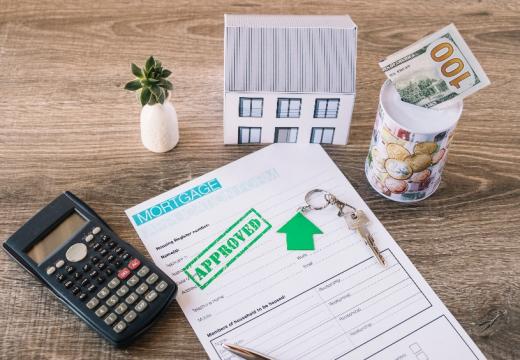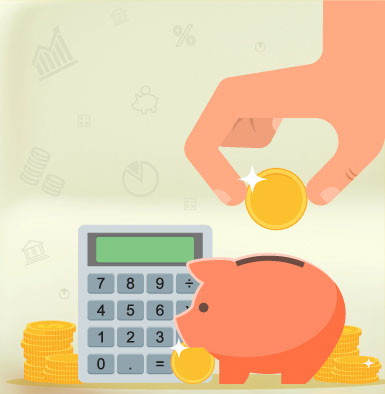The Cost of Living in Ghana: What To Expect From Housing
The Cost of Living in Ghana: What To Expect From Housing
- by PropHunt Admin
- On 05-01-2025
- at 9:28 PM

Ghana has long been regarded as the ideal place to establish permanent residency in Africa. The country has much to offer, whether your goal is to relocate your family to Accra, seek new career prospects, or embark on a tourist adventure. Even though Ghanaians are renowned for leading simple and carefree lives, the cost of living in Ghana may be higher than you might think.
If you're planning a trip to Ghana because of your excitement about the beautiful beaches, and the laid-back lifestyle. Then before you book your flights, you need to figure out how much it's going to cost to live in Ghana. That's where the cost of living in Ghana comes in. In this article, we have made a list of everything you need to know about the cost of living in Ghana.
What is The Cost of Living in Ghana?
The cost of housing in Ghana and the basic goods and services, overall affordability, and the effects of price fluctuations on households and families across the country are some of the criteria used to calculate the cost of living in Ghana. Precisely, estimating living expenses in Ghana can be challenging because it depends on location and length of time.
According to Numbeo, the monthly cost of living in Ghana for a single person is approximately $590.8 without ren, or $2,121.8 per month for a family of four, just for the necessities. Ghana is ranked 12th out of 27 economies in Sub-Saharan Africa, making it one of the most expensive countries to live in. The cost of living in Ghana averages 44.8% lower than in the United States.
Cost of Living in Ghana: Comprehensive Guide
Find out what you can expect to spend when making a trip to Ghana as an expatriate and how you can get started living a better life on a budget today!
1. Housing Expenses
The largest expense on any Ghanaian budget is typically housing. Whether it goes into a home loan, rent, or even just basic utilities like energy, housing costs are considered unavoidable. The average house rent for a one-bedroom apartment in Accra starts from $627/month. In prime neighborhoods in Accra, the amount can reach $1437/month. However, you will be considered to have “housing stress” if you are spending more than 30% of your monthly income on housing.
That's to say that one of the biggest causes of financial stress in Ghana is housing affordability. In addition to homeowners hurting from rising rents, inadequate rental properties in Accra have pushed rents to record highs in the last 4-years. According to the Annual Household Income and Expenditure Survey released in June 2023, the national median monthly asking rent for a dwelling in Accra was GHC1,200 a week. Some six months later rents had surpassed the GHC1200 mark, coming in at GHC1250 on average as of January 2024.
One of the main criteria the Ghanaian government uses to assess housing affordability is housing stress. Low levels of housing stress in Ghana imply that everybody can rent or buy a home, whereas high levels point to an unjust and costly housing market. Housing accounts for a sizable portion of the cost of living because it is a necessary commodity. To help on this matter, Prophuntgh.com lists Ghanaian accommodation options to help you manage your Ghanaian cost of living per month.
2. Transportation Expenses
Unfortunately, the public transportation system in major Accra routes is not that dependable, so driving a car is always going to be necessary. Driving a car in Accra comes with costs that vary depending on living expenses: car prices, gasoline, registration fees, and premiums for car insurance. Transportation expenses for businesses in Ghana can also be impacted by car expenses. Below is the breakdown of Ghanaian transportation expenses:
3. Food Expenses
Everyone’s cost of living in Ghana is directly impacted by changes in the price of food and beverages because grocery shopping in Accra is an evident necessity. Over time, even a minute increase in milk prices adds up. In Gahna, a few food groups that have seen a rise recently are:
- Dairy items, such as cheese and milk.
- Loaf of Fresh White Bread
- Chicken Fillets
- Bottle of Wine
- Fresh greens and fruits.
- meat
Ghanaians’ nutrition may suffer if they cannot afford to buy high-quality foods. Long-term, this can impair not just the cost of living in Ghana but also the standard of living by posing serious chronic health hazards.
Cost of Living for Students in Ghana
The cost of living for students in Ghana varies based on factors such as location, type of institution, lifestyle, and personal preferences. However, the major expenses students typically face include accommodation, tuition fees, transportation, food, and other miscellaneous costs. Below is an overview of the primary costs students might incur while studying in Ghana:
Estimated Monthly Budget for a Student in Ghana:
- Accommodation: GHS1,500 – GHS 3,500
- Food: GHS 300 – GHS 600
- Transportation: GHS 100 – GHS 300
- Utilities and Internet: GHS 200 – GHS 550
- Books and Supplies: GHS 500 (per semester)
- Miscellaneous: GHS 200 – GHS 500
- Health Insurance: GHS 200 – GHS 400
Total Estimated Monthly Cost: GHS 3,450 - GHS5,000
What is the Average Ghanaian Income
The Ghana Statistical Service (GSS) reported that the average annual income of Ghanaians reached GHS 30,000 during the 2023-2024 financial year. This figure provides valuable insight into the country's economic environment and can be understood within the broader context of income distribution, cost of living, and inflation trends.
Ghana’s inflation rate reached record highs in 2023, with double-digit inflation (around 40%) being reported during several months. While incomes have increased nominally, the purchasing power of Ghanaians has been eroded by high inflation. This means that the average GHS 30,000 income may not translate into a significant improvement in living standards for many people.
Conclusion
The cost of living in Ghana varies depending on location and time. The three main factors influencing living expenses are accommodation, transportation, and food. Ghana is more expensive than other African countries, according to Numbeo.

 French
French




